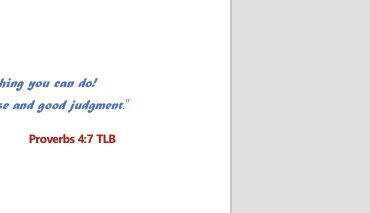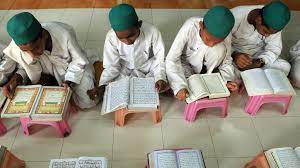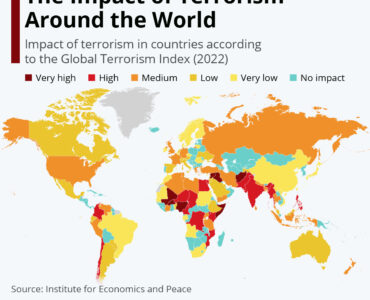
What Is Islamic Finance And Banking?
Conventional banking has been widely established for years in the Islamic world. While many Muslims and Muslim governments continue to rely on modern interest-based Western systems of banking and finance, in recent years increasing numbers of Muslims regard charging or earning interest as riba (which can mean usury, unearned gain, and exploitation) forbidden by the Qur’an. Muslim scholars today differ on whether all interest is usury. Some argue that riba only refers to excessive interest or economic exploitation. Islamic scholars at Cairo’s Al-Azhar University, an influential source of religious authority in the Muslim world, declared in 2002 that the Qur’an did not prohibit all interest payments and charges, only those that were exorbitant and crossed the line into usury. However, others regard the whole concept of interest as riba, and thus unlawful.
Muslims who believe interest is forbidden (haram) have faced a crisis of conscience when they purchase a home mortgage or invest in the stock market. Islamic banks and financial institutions were created to respond to this need. Although Islamic finance and banking has spread in much of the Muslim world, until recently it has been relatively invisible in America and Europe.
The development of “Shari’a-compliant” products in the West has been slow not only because banking institutions lacked knowledge of Islamic law (Shari’a) but because they did not see a substantial market in the Muslim community. In recent years, however, the windfall from the unexpectedly high increase in oil prices has led to a boom in Islamic finance, not only increasing the eagerness of Muslim countries like Malaysia to become major centers of Islamic finance but also attracting struggling Western markets. The global Islamic finance market has grown by 15 percent in each of the last three years. The estimated amount of Islamic assets under management is approximately $800 billion, and some project a potential market of $4 trillion ($4,000,000,000,000)
Where are the ten largest Islamic finance banks: Saudi Arabia? Kuwait? Qatar? Malaysia, which has positioned itself to be the global capitol for Islamic banking? If you guessed any of these or indeed any country in the Muslim world, you would be wrong. While Islamic banks do exist in many Muslim countries, the ten largest Islamic finance institutions are European and American banks. UBS, HSBC, Barclays, Deutsche Bank, Standard Chartered, Lloyds TSB, Swiss Re, Citigroup, Goldman Sachs, and Morgan Stanley are some of the leading Western institutions that have rushed to the Shari’a-compliant market. All have Shari’a advisory boards charged with reviewing transactions.
One major and expanding product, the Muslim mortgage, responds to the need of Muslims in America and Europe who see conventional Western loans and mortgages as Islamically unacceptable. Such mortgages seek to comply with Islamic law’s traditional ban on charging, earning, or paying interest on borrowed money. Banks and financial institutions have moved quickly to service this growing market. For example, in July 2003 HSBC, one of the largest banks in the United Kingdom, brought out a range of Shari’a-compliant mortgages. By the end of 2005 there were five banks offering Islamic mortgages, including Lloyds TSB and the Islamic Bank of Britain. Today, Britain is the West’s leading center for Islamic finance.
How does a Muslim mortgage differ from a standard Western mortgage? Islamic mortgages are conducted by having the bank purchase the property and sell it back to the mortgagee. This can be handled in various ways. In a murahaba> (originally a term of fiqh for a sales contract where the buyer and seller agree on the markup or “cost-plus” price for the item(s) being sold. In recent decades it has become a term for a very common form of Islamic financing, where the price is marked up in exchange for allowing the buyer to pay over time — for example with monthly payments. Murahaba financing is similar to a rent-to-own arrangement in the non-Muslim world, with the intermediary retaining ownership of the item being sold until the loan is paid in full. There are also Islamic investment funds and sukuk (financial certificates) that use murahaba contracts.) transaction, the bank will purchase the property and then sell it to the buyer at a pre-agreed cost plus profit, which is paid in installments over a period of time. In a musharaka (sharing) arrangement, the bank (which provides the greatest share of the purchase price of the home) and the customer enter into a partnership. The customer makes monthly payments to the bank for use of the home and as contributions toward the equity of the home, which gradually increase the customer’s ownership share until the mortgage is paid in full. This option can be more flexible, providing variable rather than fixed repayments that can result in lower initial repayments. In a similar ijarah (rent) arrangement, the bank purchases the house and leases it to the customer, who pays a monthly installment for the price of the house. A portion of each monthly payment goes toward ownership until the customer owns 100 percent of the home. Unlike a typical rental, the customer is responsible for all maintenance of the property and has all the rights and duties of a homeowner.
Muslim mortgages can involve some hurdles. Often the buyer must initially find more money than would be required if he or she were obtaining a traditional mortgage. Shari’a-compliant mortgages usually involve paying a large deposit, often around 20 to 30 percent of the total cost. Some Muslims counter those who point to these drawbacks by saying that religion is not always about taking the easiest path. Just as halal food (like kosher food for Jews) may cost more than regular food, Muslims are willing to make the sacrifice to fulfill a religious obligation and realize its rewards. Some have observed that if Islamic banking standards had been in effect, the current investment and banking market crisis in America might have been avoided.
What Is Islamic Finance And Banking?
410 – 001
https://discerning-Islam.org
Last Update: 02/2021




